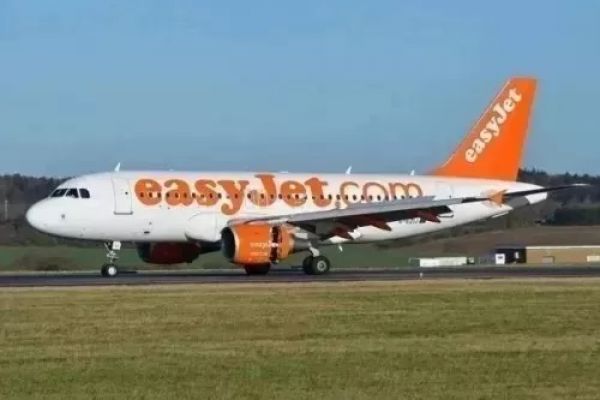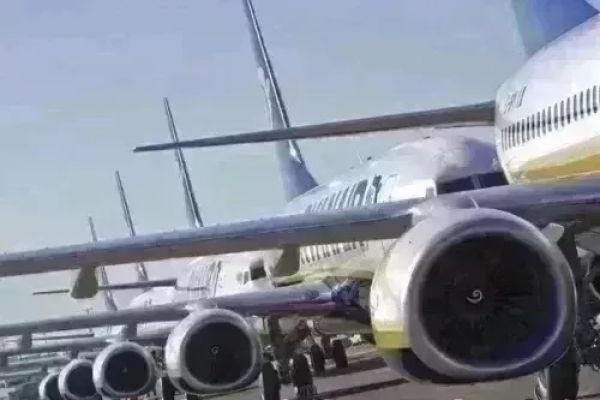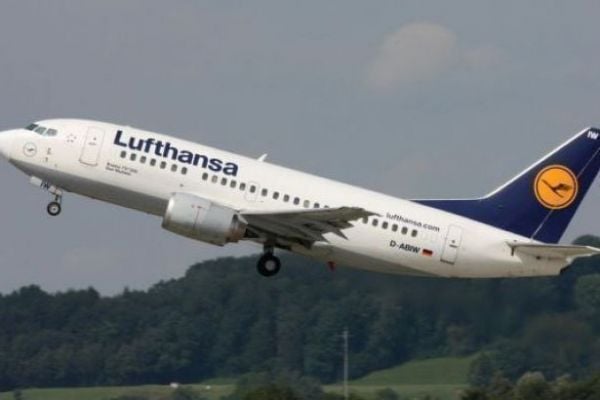Spain-based pilots at easyJet EZJ.L will go on strike for nine days in August to demand better working conditions, the SEPLA union has said.
Details
The union is demanding that the budget airline reestablish pilots' working conditions from before the COVID-19 pandemic and provide its pilots with a new multi-year contract deal.
EasyJet said it was aware of an upcoming pilot strike at its bases in Barcelona, Malaga and Palma in Mallorca.
"We are disappointed with this action at this critical time for the industry," the company said in a statement, adding that negotiations with SEPLA are ongoing.
Airlines face labour disputes this summer as a steep rebound in tourism has led to staff shortages while soaring inflation encourages cabin crews and pilots to demand higher wages and better conditions.
On Thursday 28 July, Spain-based cabin crew at easyJet suspended a planned strike scheduled this weekend after reaching a deal with the airline that includes higher salaries, the USO union said.
EasyJet Sees Less Turbulence After £133m Hit From Cancellations
The above news followed news that easyJet EZJ.L forecast less turbulence for the rest of the summer after it cut its schedule to tackle delays and last-minute cancellations that cost it £133 million in the three months to the end of June.
Chief executive Johan Lundgren said removing thousands of flights had stabilised day-to-day operations.
"This weekend, for example, the first of the UK school summer holidays, we operated more than 3,100 flights across Saturday and Sunday and made zero on-the-day cancellations in the UK," he told reporters on Tuesday 26 July.
The British low-cost airline said an "unprecedented ramp up" in aviation, coupled with a tight labour market, had resulted in operational challenges and cancellations.
EasyJet cut its flights after caps were imposed by London Gatwick and Amsterdam Schiphol airports, a step taken to reduce misplaced bags, delays and last-minute cancellations.
Lundgren said this summer was a "one-off" and the industry had to work together to improve service rather than "pointing fingers".
"There is no one across the industry in aviation at all who hasn't felt the pressure and the squeeze, whether that is ground handlers, or airports or air traffic management or airlines," he said.
Heathrow, Britain's busiest airport which is not used by easyJet, has capped departing passengers at 100,000 a day for the rest of the summer.
"We've seen a significant improvement in both punctuality and baggage performance since the cap came in," Chief Executive John Holland-Kaye told Reuters on Tuesday 26 July.
He said ground handling capacity had fallen sharply during the pandemic as airlines cut costs.
Caps would remain until the shortage was resolved, he said, adding it was a responsibility of the airlines.
"I think it will take 12 to 18 months for the aviation sector to get back to pre-COVID levels," he said.
EasyJet said the disruption and pressure on household budgets had not dampened demand for travel, reflected in the yield on the tickets sold for its current quarter rising 13% above pre-pandemic levels.
Flights for July-September were 71% booked, with a load factor - a measure of how well planes are filled - slightly ahead of 2019.
Shares in easyJet, which reported a headline loss before tax of £114 million for April-June, were up 1.7% in morning deals on Tuesday 26 July.
News by Reuters, edited by Hospitality Ireland. Click subscribe to sign up for the Hospitality Ireland print edition.








